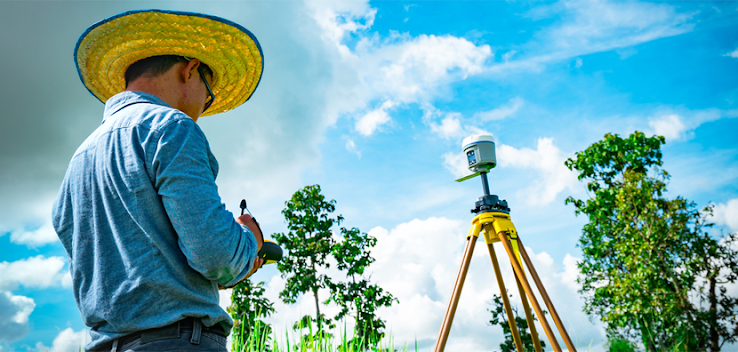Summary of the Delhi Ground Penetrating Radar Research
Often abbreviated as "GPR," ground penetrating radar is a surveying technique used to map out a site's underground features. The use of ground penetrating radar (GPR) studies to learn more about the subsurface environment in Delhi has grown in popularity in recent years. Since GPR scans are non-destructive, they don't necessitate any digging or disturbing of the surface environment. This is because the groundwork is unnecessary. In Delhi, GPR surveys have been carried out to assess geotechnical conditions, locate buried contaminants, and map out underground utilities. This article provides an overview of ground-penetrating radar surveys in Delhi, covering their many applications and highlighting both their advantages and disadvantages.
Surveying with Ground Penetration Radar in Delhi
In Delhi, GPR surveys have been used for a variety of purposes, including the locating of buried infrastructure like pipes and cables. The results of these polls have also been put to use in other contexts. The presence of buried artifacts can be confirmed by GPR scans, and their position, dimensions, and depth can be mapped. Surveys using GPR can also be used to unearth buried structures. Soil geotechnical properties including tensile strength, moisture content, and permeability can also be assessed with the help of GPR scans. Subsurface pollutants including hydrocarbons, metals, and organic compounds can be located and mapped using GPR scans. Combining the aforementioned methods will result in the desired outcome. detailing the various applications they have and the pros and cons of employing them.
The Value of Ground Penetrating Radar Studies in Delhi
Compared to conventional survey methods, GPR survey services in Delhi provide several advantages. Since GPR scans are non-destructive, they don't necessitate any digging or disturbing of the surface environment. This is because the groundwork is unnecessary. As there is no risk of damaging sensitive ecosystems or ancient artifacts during GPR surveys, they are a good choice for measuring such locations. While conventional surveying techniques have a limited depth at which they can identify objects, GPR has a far deeper detection range. Because of this, GPR surveys can reveal far more information about the ground underneath. Finally, ground penetrating radar (GPR) surveys are a great choice for surveying larger areas because they may be conducted for a reasonable time and cost.
Delhi's Restrictions on GPR Surveys
There are a few rules for doing GPR surveys in Delhi. Only electrically conductive materials, such as metals and certain types of soils, can be detected by GPR surveys. Nonetheless, this does not rule out the discovery of other objects. Because the signal cannot pass through the surface, GPR scans cannot detect objects that are too close to the surface. Because of this, locating these items is hopeless. Furthermore, other types of interference, such as electromagnetic interference from nearby power lines, might affect the accuracy of GPR scans. The survey's accuracy may suffer as a result of this disruption. In conclusion, ground penetrating radar (GPR) scans are not always applicable, especially in areas with dense vegetation or rocky ground.
5. Concluding Remarks
Finally, ground penetrating radar survey in Delhi provides several advantages over conventional survey techniques. In addition to being able to provide this service, GPR surveys are non-invasive, affordable, and comprehensive assessments of the subsurface environment. Yet, GPR surveys aren't without their flaws, what with their inability to detect non-conductive material objects, their susceptibility to interference, and their incompatibility with particular types of terrain? In Delhi, ground penetrating radar (GPR) scans continue to be an effective method for learning about the subsurface. This is true despite the obvious constraints discussed above.



Comments
Post a Comment